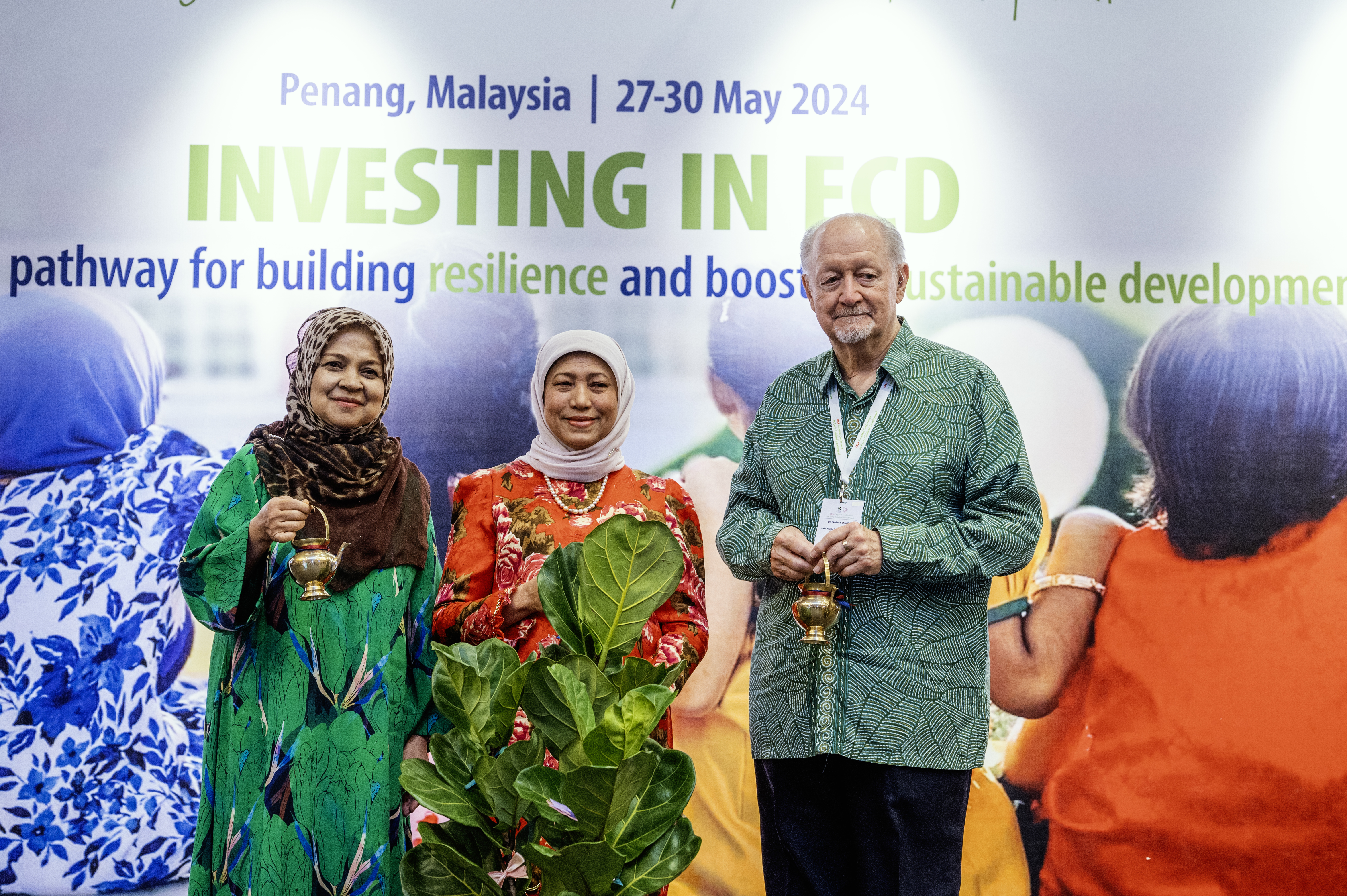ARNEC conference calls for investment for young children for climate resilience, sustainable development
Advocacy : ECD Governance, Policy, and Financing
ARNEC conference calls for investment for young children for climate resilience, sustainable development
Penang opened its doors to more than 500 participants from 48 countries for the 2024 Asia-Pacific Regional Conference on Early Childhood Development (ECD), May 28-30, focusing on investing in ECD to build resilience and boost sustainable development.
YB Dato' Sri Hajah Nancy Binti Shukri, Minister of Women, Family and Community Development of Malaysia, opened the Penang Conference.
This year’s regional conference emphasised the urgency of investing in ECD as a powerful tool for nurturing resilience among young children, because of risks young children face in the Asia-Pacific and worldwide.
ARNEC: multiple crises young children face need to be addressed
The climate crisis has become a child rights crisis with adverse implications to nurturing care services they receive. UNICEF in its report entitled The climate crisis is a child rights crisis cited that “…[changing climates] is creating a water crisis, a health crisis, an education crisis, a protection crisis and a participation crisis…threatening children’s very survival…[and]…infringing on children’s rights – as outlined in the United Nations Convention on the Rights of the Child.”
The Asia Pacific region is highly exposed to climate change, where over half of global disaster losses occur annually. By 2100, this could result in GDP losses of 32% in Southeast Asia, 35% in India, and 24% in all of South Asia, with the Pacific Island Countries also facing severe climate impacts, according to World Bank.
Young children are facing a poly-crisis or the combined effects of climate change, environmental degradation, and COVID-19 pandemic, among others.
ARNEC Board Chair Dr. Sheldon Shaeffer stressed, one-third of children between the ages of 3-6 years are developmentally not on track due, among other things, to malnutrition, poor health, stress and trauma, and the lack of responsive caregiving.
“In 40% of Asia-Pacific countries, 1 out of 2 children do not receive any type of ECCE, and children living in high-income countries are almost four times more likely to be enrolled in pre-primary education than children living in low-income countries,” Dr. Shaeffer cited.
ARNEC also organised a roundtable discussion on ECD progress and opportunities in the region with MP YB Syerleena binti Abdul Rashid and UNICEF Interim Regional Director Myo-Zin Nyunt as chair and co-chair, respectively.
Global experts: environmental threats, ECD impacts
The Penang conference brought together international experts to keynote plenary discussions. In addition to Datuk Dr. Chiam Heng Keng, founding President of ECCE Council of Malaysia, other experts included Joan Lombardi, Director of Early Opportunities and Adjunct Professor, Stanford Center for Early Education; Bhavreen Kandhari, Warrior Moms; Hari Govindra, London School of Hygiene and Tropical Medicine; Yoichi Sakakihara, Child Research Network; and Frances Aboud, McGill University Canada.
Keynote speakers focused their plenary presentations on building resilient learners; homes and families; programs and services; and ECD systems.
ECCE Council of Malaysia hosted the Regional Conference organized by the Asia-Pacific Regional Network for Early Childhood (ARNEC) and supported by UNESCO, UNICEF, Plan International, Save the Children, ECD Regional Networks Fund, and SEGi University and Colleges.
